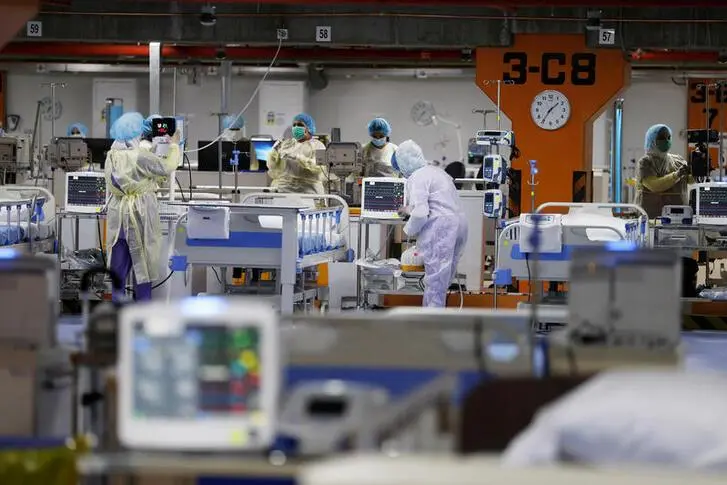PHOTO
Medical devices and provisions worth BD45 million were imported last year, it has been revealed.
The supplies ranged from gauze, cotton and gloves to thermometers, X-ray and CT machines.
The statistics, which reflected an increase from BD30m in 2019, was revealed by National Health Regulatory Authority (NHRA) engineering safety adviser Nada Ghassan Alsayegh.
She added that the NHRA registered 1,114 medical devices from August to December last year, while it received 12,000 requests to import medical devices last year.
Ms Alsayegh was speaking yesterday at the second GCC MedTech Summit which focuses on medical device and technology regulation, registration, market access and compliance in the Gulf region.
The three-day forum is being hosted by Bahrain with experts from the GCC nations reviewing the GCC regulations governing medical devices.
The GDN previously reported that in 2019 the NHRA registered 2,513 medical devices, and received 18,000 requests to import medical devices.
“The number of requests went down last year compared with 2019 while the value of the devices imported increased from BD30m in 2019 to BD45m last year,” pointed out Ms Alsayegh.
“This is mainly because we held three workshops with authorised representatives on raising awareness and minimising the number of applications rejected.
“Last year due to certain limitations we had restricted the registrations of medical devices – from August to December we registered 1,114 devices.”
NHRA had also limited its in-house services in line with the coronavirus (Covid-19) protocols adopted in Bahrain, and this included registering medical devices.
Bahrain imported medical devices worth BD28m in 2018, BD25m in 2017 and BD19m in 2016 – the year during which the country adopted the medical device regulation in line with GCC standards.
In her opening address, NHRA chief executive Dr Mariam Al Jalahma noted that Bahrain was one of the first countries to support the process of regulating and registering medical devices in the GCC.
“We are proud that we set up the regulations as per GCC guidelines which was submitted to the GCC and is being used as a reference document by other countries,” she said.
“Bahrain has set guidelines in line with the World Health Organisation as well – all of which is aimed at preventing counterfeit or low-quality medical devices entering our countries.”
She urged all concerned to follow the regulations which contributed to patient safety.
“We know that many representatives find it a burden (documents related to medical device and regulations) but what we want as regulators is to prevent counterfeit and poor-quality devices to be circulated or imported into the country.
“This would lead to improper diagnosis or management of medical conditions.”
Keynote speaker MedTech Europe Strategy and International Affairs director general Jesús Rueda Rodríguez, who presented an update on global medical devices regulation, cited the changing dynamics in the field due to technological innovations, especially in the light of the pandemic.
“We see the use of artificial intelligence, robotics and telemedicine in the healthcare sector which pose specific challenges to the regulators,” he said.
“This calls for the need for proper evaluation, assessment and effective introduction of the services in the market, and regulating the system is key for patient safety.”
He lauded the GCC countries for their “overall commitment to regulated practices” which, he added, was further effective due to the “collaborative approach”.
In today’s session, NHRA clinical trials specialist Sumaya Husain will speak on clinical evaluation and lessons learnt from the implementation of medical device regulations.
Meanwhile, NHRA medical equipment engineer Omar Mohamed will throw light on the impact of Covid-19 on counterfeit medical equipment tomorrow.
© Copyright 2020 www.gdnonline.com
Copyright 2021 Al Hilal Publishing and Marketing Group Provided by SyndiGate Media Inc. (Syndigate.info).





















